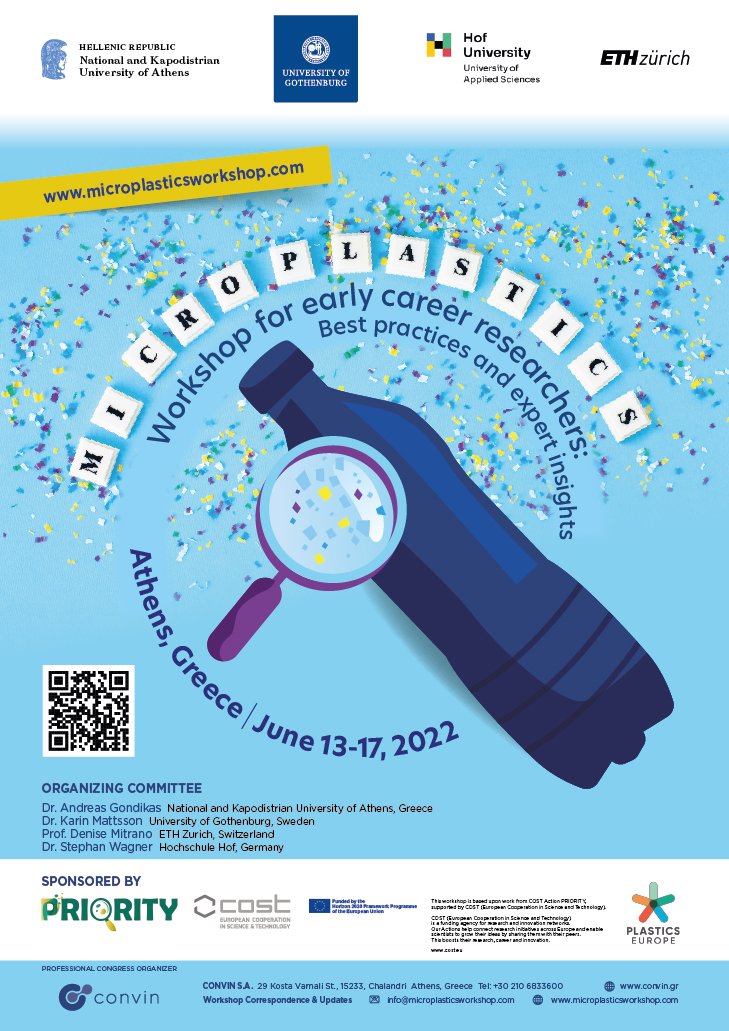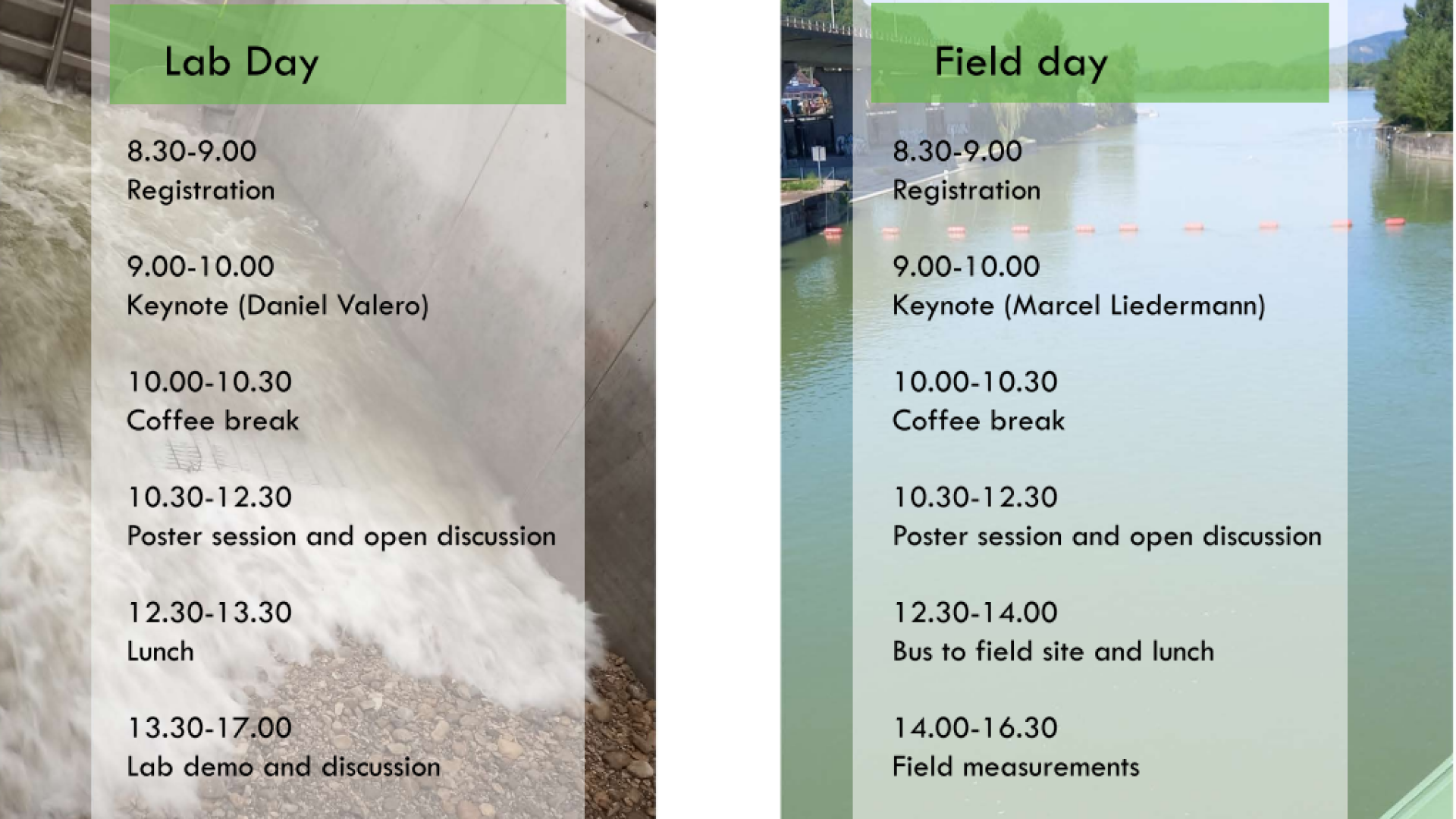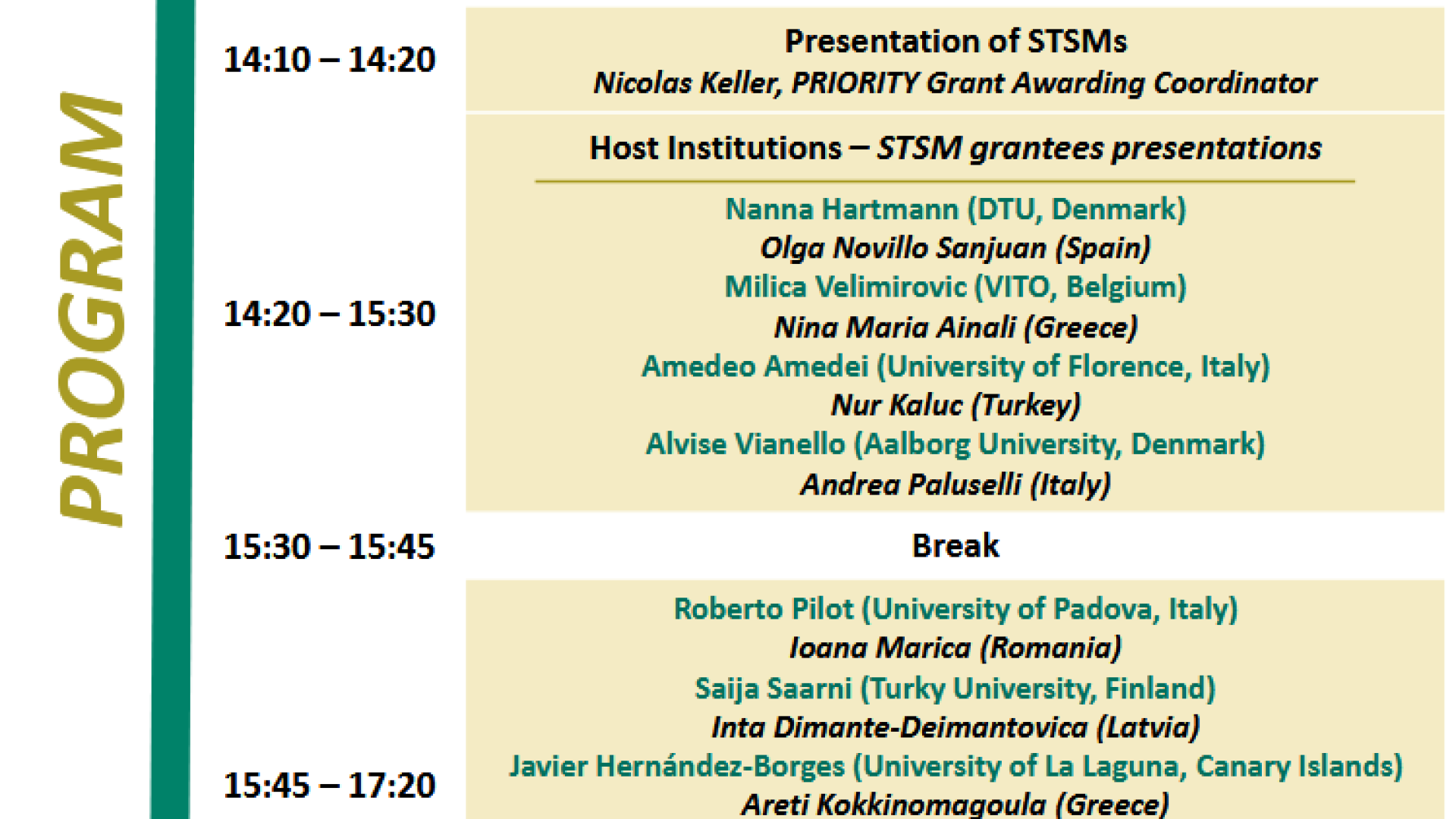Are you about to start a research project on microplastic as part of your PhD or MSc program? Do you have questions or doubts about your experimental design or specific technical issues?
If so, this workshop is for you!
Key focus
The overarching goal of this conference is on increased interaction between students (Ph D candidates, early stage Postdocs) and field-leading experts. Through a series of novel and targeted interactive development and break-out sessions, we strive for active participation of a wide variety of scientists from different backgrounds to increase our collective understanding on the most important research questions in the field and up-to-date approaches in tackling microplastics research. In this way, the early career researchers not only have the opportunity to learn more about the scientific and methodological research and expand their scientific network by intense communication in small circles, but also learn career building skills which they can put into practice in their daily work.
This conference will have three main foci to help early career researchers become more knowledgeable in the field of environmental microplastics studies and be better equipped to be competent and confident researchers in the future. These include 1) key-note lectures by experts highlighting the state of the art in the field, 2) interactive sessions between students and experts for more in-depth scientific discussions and increased networking amongst participants and 3) student development sessions, where lectures are given to help students have the information and tools they need to work in the field of academic science.
Main objectives and importance for scientific co-operation
Because of the interdisciplinary nature of such a large and multi-faceted topic, microplastic research attracts scientist from very diverse disciplines ranging from polymer chemists to environmental scientists to human and eco-toxicologists. This requires cooperation and collaboration amongst scientists in order to both ask the correct questions and to correctly interpret results, but understanding the viewpoints of those who have a different scientific background is not always easy because of the different language and methodologies which are used within each field. Especially for early career researchers, learning how to communicate with each other well will help them navigate and properly evaluate the wide variety of studies which are published today, and help them to start thinking beyond their own field of research. Additionally, by strengthening their scientific networks, both within peer circles and being able to approach experts more easily, they will be able to get the advice and help they need to conduct their best research.
With this conference, we aim to increased the confidence and scientific development of early career researchers working in the field, so that we can support ambitious and talented young students in their efforts to understand the impacts and implications of (micro)plastics pollution in the environment.






